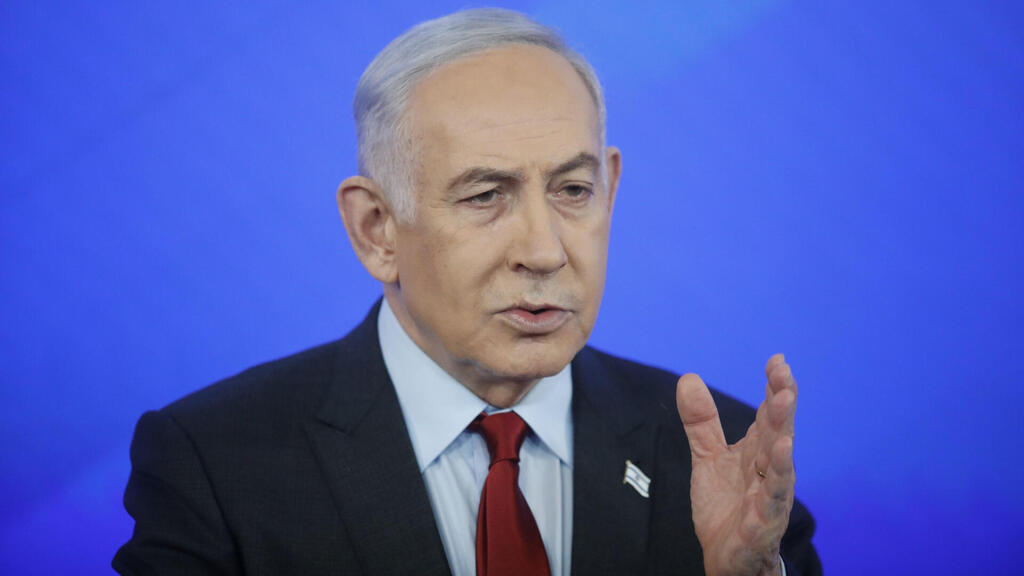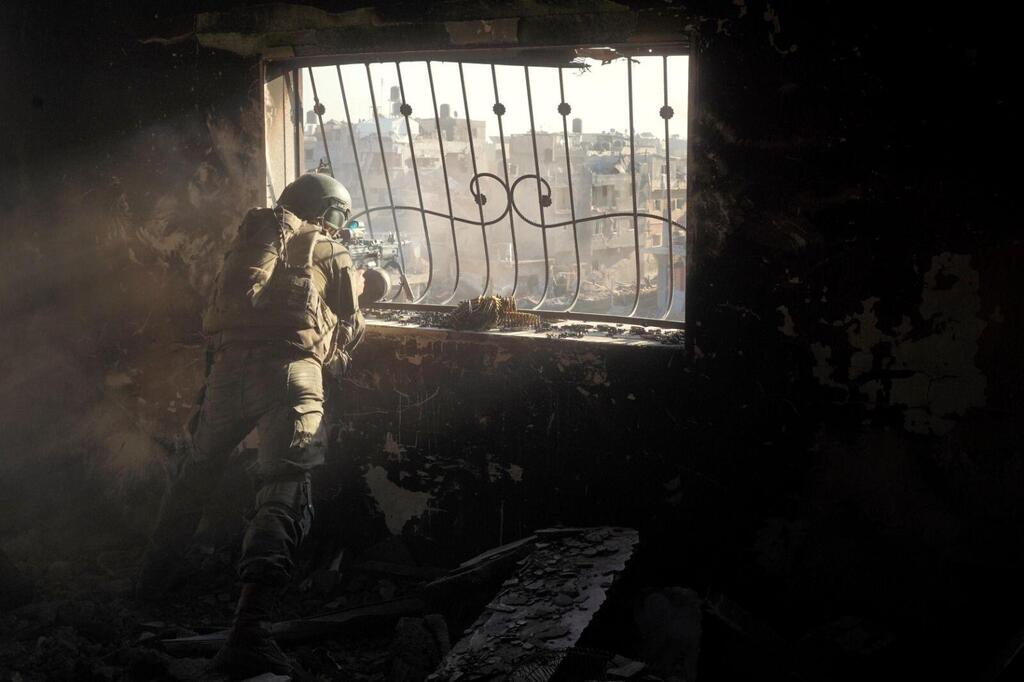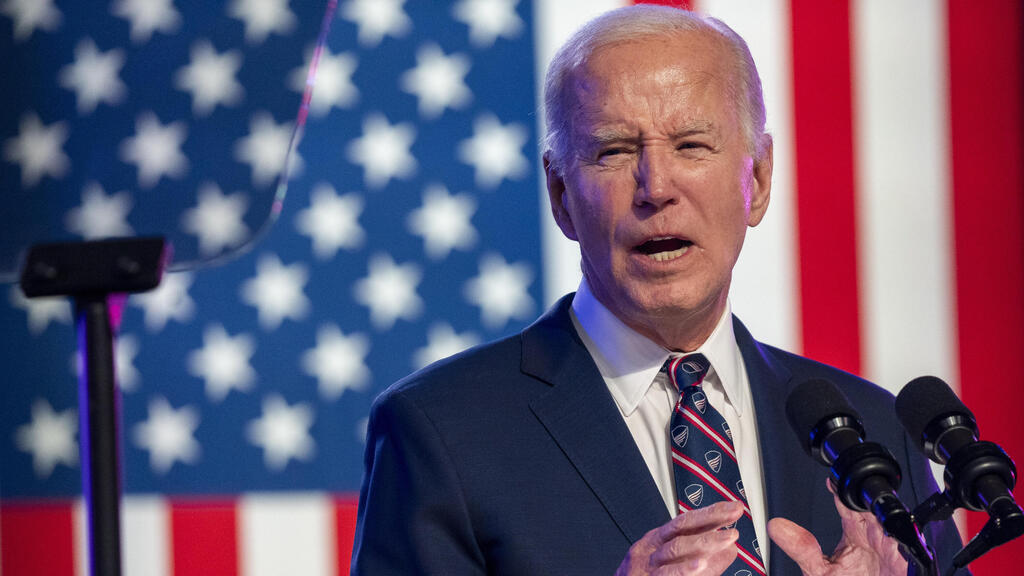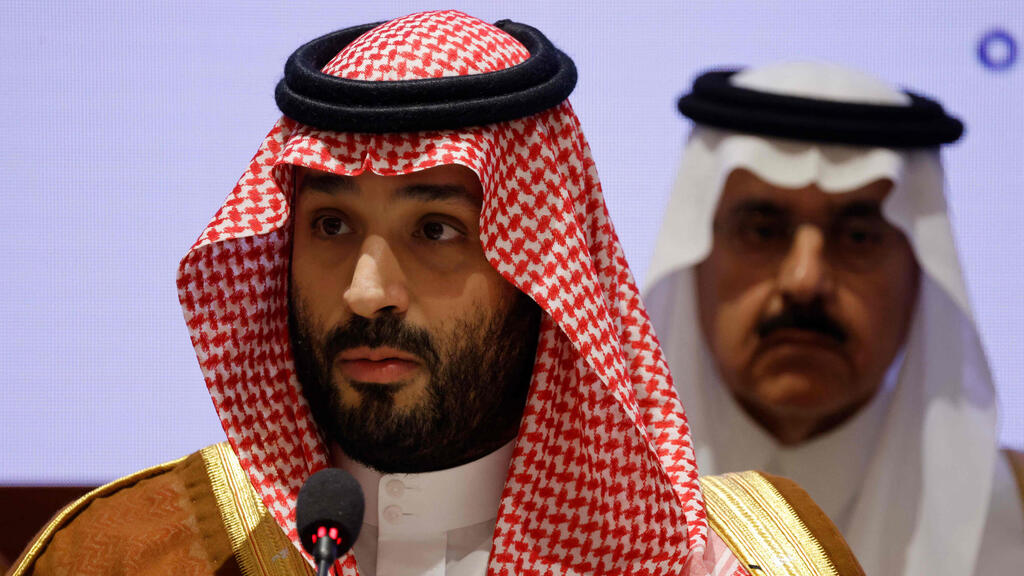Prime Minister Benjamin Netanyahu said the war in Gaza will continue for a long time but is going better than many expected." In an interview published in the Wall Street Journal on Saturday, Netanyahu said it took the U.S. military nine months to "liberate" Mosul in Iraq, which he noted was much smaller than Gaza where the IDF has been fighting for the past four months.
More stories:
Musul, he said "did not have the massive terror underground infrastructure. We’re now in the fourth month, but we’ve had tough days,” he said days after an explosion killed 21 soldiers after Hamas terrorists fired RPG rockets at a building rigged with explosives ahead of its demolition.
In the interview, Netanyahu also addressed the dispute with the United States over plans for post-war Gaza, amid pressure from U.S. President Joe Biden’s administration to advance a two-state solution. The prime minister said he was full of gratitude for Biden's strong support throughout the war and said that despite the disagreements, the Americans also agree that the war’s goal is “destroying Hamas.”
"Anyone supporting Israel and who also supports a two-state solution should ask themselves some questions. Do they support the Palestinians having an army? The answer is of course not. Should the Palestinians be able to bring in weapons? The answer is of course not. Should they be able to make military pacts with Iran? Of course not."
In the interview, Netanyahu reiterated his position that the Palestinians present the true obstacle to peace due to their leaders' refusal to accept the very existence of the State of Israel. "Some in the United States believe that the obstacle to peace with the Palestinians is — me. They don’t realize that I reflect the view of most Israelis,” he said
Netanyahu also detailed his “formula” for peace, saying, " In any future agreement, the Palestinians should have all the power to govern themselves and none of the powers to threaten Israel." He reiterated his position that Israel must maintain control of security over the entire area west of Jordan, including Gaza: "This necessarily detracts from Palestinian sovereignty. Any solution to this conflict in the future begins by recognizing this reality today."
Netanyahu also restated his pre-war stance, asserting that peace with the Palestinians can only happen after peace between Israel and the rest of the Arab world has been achieved: "The way to achieve it is to go to the Arab states and then circle back to the Palestinians."
Before Hamas’ attack on October 7, Israel and Saudi Arabia were on the verge of signing a normalization agreement. However, Riyadh then demanded relatively small concessions for the Palestinians as part of its recognition of Israel, and now, according to reports, it has raised its demands, asking to see significant progress toward establishing a Palestinian state.
Despite appearing opposed to this, Netanyahu said in the interview he believes the chances of reaching an agreement with Saudi Arabia are "good." He promised to continue advancing this matter but emphasized that the contacts need to be "secret."
“If we make any progress, it will require important consultations, and if those are to succeed, they need to be done discreetly. That is exactly what happened with the Abraham Accords,” he said.
In the interview, Netanyahu was asked about the improving relations between Saudi Arabia and Iran, which renewed their diplomatic ties last year after years of estrangement. "I’m sure no one in Riyadh has any illusions about Iran’s ambitions and aggressions.”
Netanyahu also addressed relations with Russia and admitted that Israel was concerned about the implications of Moscow's cooperation with Tehran. " Iran has become the chief arms supplier to Russia, and we’re obviously concerned about Russian reciprocation.”






